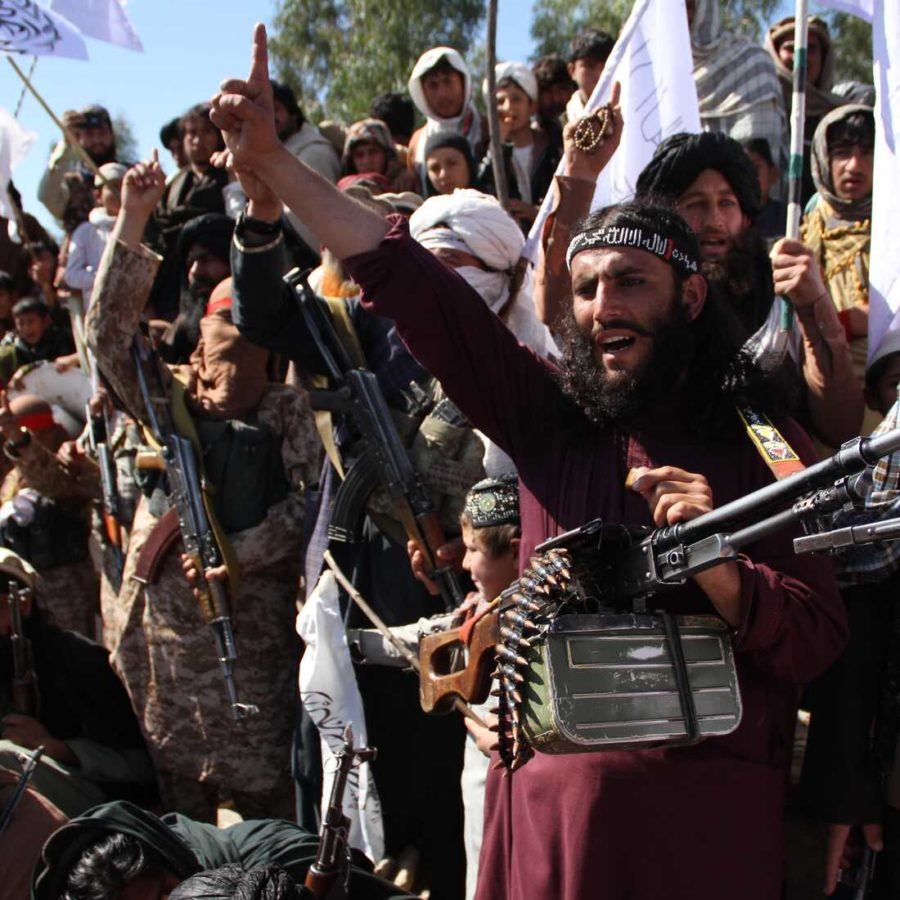It has been 20 years since the United States and Afghanistan went to war after the terrorist group Al-Qaeda planned and carried out four coordinated attacks against the United States on the morning of September 11, 2001.
This series of events caused nationwide panic and eventually led to U.S. troops being deployed to Afghanistan when George W. Bush signed a Congressional Resolution on September 18, 2001, authorizing the use of force against those responsible for the attack.
“We’ve had a military presence there [Afghanistan] for nearly 20 years starting in October of 2001 as a response to the 9/11 attacks. And at first, it was to try to root out the perpetrators and kind of get revenge against Al Qaeda, but it became a nation-building program, which regrettably has failed.” Carlos Osuna, Woodside senior, said.
The Taliban is a Deobandi/Wahabi Islamist religious-political movement and military organization in Afghanistan. The then-current Taliban rule over Afghanistan provided a haven for Al Qaeda but also where nearly 2,500 U.S. servicemen and servicewomen lost their lives while serving in battle.
On February 29, 2020, the former president of the United States, Donald Trump, signed an agreement with the Taliban that set terms for the U.S. withdrawal from Afghanistan.
“I think that violence is unnecessary, and we should avoid it if and when possible. So, yes, I don’t agree with Trump on much, but I do agree that it was time to get out of [Afghanistan].” Osuna explained.
On April 14th, 2021, the current president of the United States, Joe Biden, announced that it was “time to end the forever war,” saying that all U.S. troops would be pulled from Afghanistan by September 11, continuing Trump’s plans.
“I don’t think we should [have pulled] all of them out. There’s a degree where we should let people go home and end the war, but if we leave them alone then we might be putting ourselves in a vulnerable position again.” Jamie Leland, a freshman at Woodside, said.
There is much debate over whether or not the decision to remove the U.S. troops from Afghanistan was a good one.
“Ultimately, [whether or not it was a good idea] depends on Afghanistan’s peoples’ perspective. You can see that there’s unrest there, [The Taliban is] not satisfied with the point of the troops and the reaction they’ve had.” Woodside freshman Christopher Gibbons stated. “So, I am leaning towards the side that it was not the right decision. It’s not a good thing to be continuing war there, but at the same time it’s not a good thing to subject the good people that live there [to Taliban rule].”
The Taliban is known for using terror and violence to get their message across and meet their goal; a solely Islamic government. They have created strict dress codes and guidelines for Afghan people, especially women, to follow.
“I know that there were a lot of advancements in women’s rights when the troops were there, and a lot of that is probably going to ‘unhappen’ and go back to how it was when the Taliban were in power before.” Woodside freshman Max Dujmovic said. “Women couldn’t go outside without male supervision and the burkas. I don’t know if I know enough about that, but it feels a lot like I don’t know what [the troops] were accomplishing.”
Once the U.S. left Afghanistan, the Taliban stormed many provinces, including the capital city, Kabul.
“For the troops, it’s safer…But, how many people have been re-endangered by that decision [to remove the troops]? That worries me.” Dujmovic continued.
Yet, the people in Afghanistan’s futures remain uncertain.
“I feel terrible for what the Taliban has done to the women there, the girls… I don’t think that’s okay at all, but I don’t think that the U.S. can be expected to defend people that won’t defend themselves,” Osuna described. “We can’t keep risking our own lives if they won’t risk theirs.”






